 Outerbase
vs
Outerbase
vs
 QueryLab
QueryLab
Outerbase
Outerbase is a comprehensive data management platform that combines artificial intelligence with database operations to streamline data workflow. The platform offers advanced features including AI-powered querying through EZQL™, intelligent chart generation, and customizable table management capabilities.
The platform ensures enterprise-grade security with SOC 2 Type 2 and HIPAA compliance, supporting multiple database providers including PostgreSQL, MySQL, SQLite, and MongoDB. Its architecture allows for seamless integration through embeddable components and provides robust visualization tools for data analysis.
QueryLab
QueryLab revolutionizes database management by offering instant, AI-powered database sandboxes that support multiple database platforms including PostgreSQL, MongoDB, ClickHouse, Redis, and Neo4j. The platform enables one-click deployment of fully configured databases, making them immediately available for use.
At its core, QueryLab transforms natural language prompts into complex database queries, facilitating seamless data interaction and management. The system supports CSV imports, external data integration, and automatic visualization generation, making data analysis accessible to users of all skill levels. The platform's intelligent query generation system understands database schemas and can automatically create appropriate data structures and visualizations.
Outerbase
Pricing
QueryLab
Pricing
Outerbase
Features
- EZQL™: Natural language database querying for instant insights
- AI-powered Editor: Intelligent query assistance with error correction
- Auto Chart Generation: AI-driven data visualization creation
- Custom Table Editor: Spreadsheet-like interface with advanced features
- Data Catalog: Business term definitions and relational diagrams
- Security Features: SOC 2 Type 2 and HIPAA compliance with encryption
- Database Compatibility: Support for multiple SQL and NoSQL databases
- Embeddable Components: Integration capability for tables and analytics
QueryLab
Features
- Instant Database Deployment: One-click setup of multiple database types
- Natural Language Query Generation: Converts plain text to complex database queries
- External Data Integration: Ability to fetch and integrate data from external sources
- Automated CSV Processing: Drag-and-drop CSV import with automatic schema creation
- Dynamic Visualization: Automatic generation of charts and graphs from query results
Outerbase
Use cases
- Database management and analysis
- Business intelligence reporting
- Data visualization creation
- Team collaboration on data projects
- Custom analytics dashboard development
- Database schema visualization
- Secure data access management
- Enterprise data governance
QueryLab
Use cases
- Creating and managing database sandboxes for development
- Rapid prototyping of database structures
- Data analysis and visualization
- Teaching and learning database concepts
- Quick database setup for testing and development
- Processing and analyzing external datasets
Outerbase
FAQs
-
How does Outerbase ensure data security?
Outerbase maintains SOC 2 Type 2 and HIPAA compliance, uses AES and RSA encryption, and provides features like two-factor authentication, SSH tunneling, and private AI models that aren't trained on customer data.What types of databases does Outerbase support?
Outerbase supports multiple SQL and NoSQL databases including PostgreSQL, MySQL, SQLite, MongoDB, ClickHouse, Microsoft SQL Server, Snowflake, Google BigQuery, and Amazon Redshift.Where is customer data stored?
Customer data remains in their own database. Outerbase only stores an encrypted version of the schema to enable AI capabilities.
QueryLab
FAQs
-
What types of databases does QueryLab support?
QueryLab supports multiple database types including PostgreSQL, MongoDB, ClickHouse, Redis, and Neo4j.Can I import existing data into QueryLab?
Yes, QueryLab supports drag-and-drop CSV file imports and can automatically create appropriate database schemas.How does the natural language query feature work?
Users can input queries in plain language, and QueryLab's AI converts them into proper database queries based on the database schema and context.
Outerbase
Uptime Monitor
Average Uptime
100%
Average Response Time
176.54 ms
Last 30 Days
QueryLab
Uptime Monitor
Average Uptime
100%
Average Response Time
138 ms
Last 30 Days
Outerbase
QueryLab
Related:
-
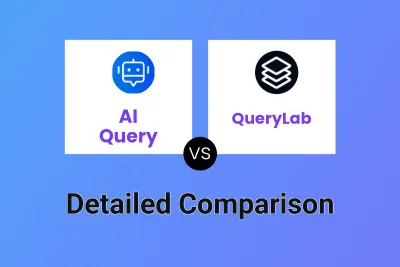
AI Query vs QueryLab Detailed comparison features, price
-
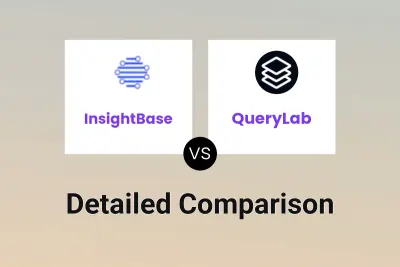
InsightBase vs QueryLab Detailed comparison features, price
-
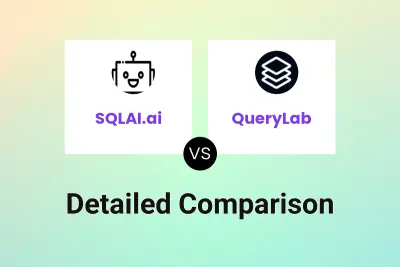
SQLAI.ai vs QueryLab Detailed comparison features, price
-
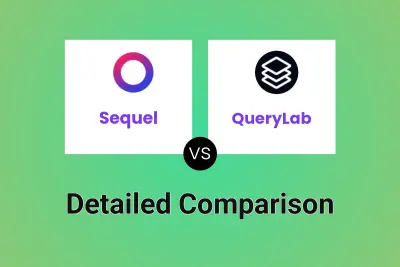
Sequel vs QueryLab Detailed comparison features, price
-
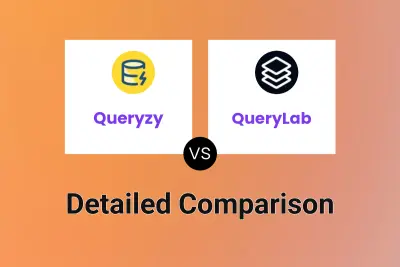
Queryzy vs QueryLab Detailed comparison features, price
-
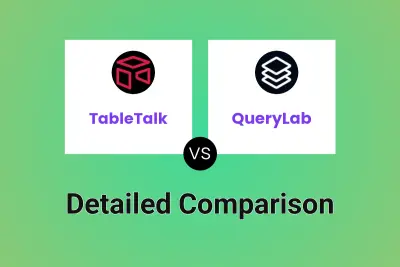
TableTalk vs QueryLab Detailed comparison features, price
-
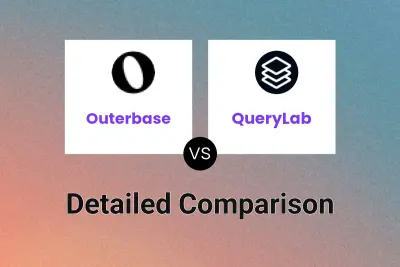
Outerbase vs QueryLab Detailed comparison features, price